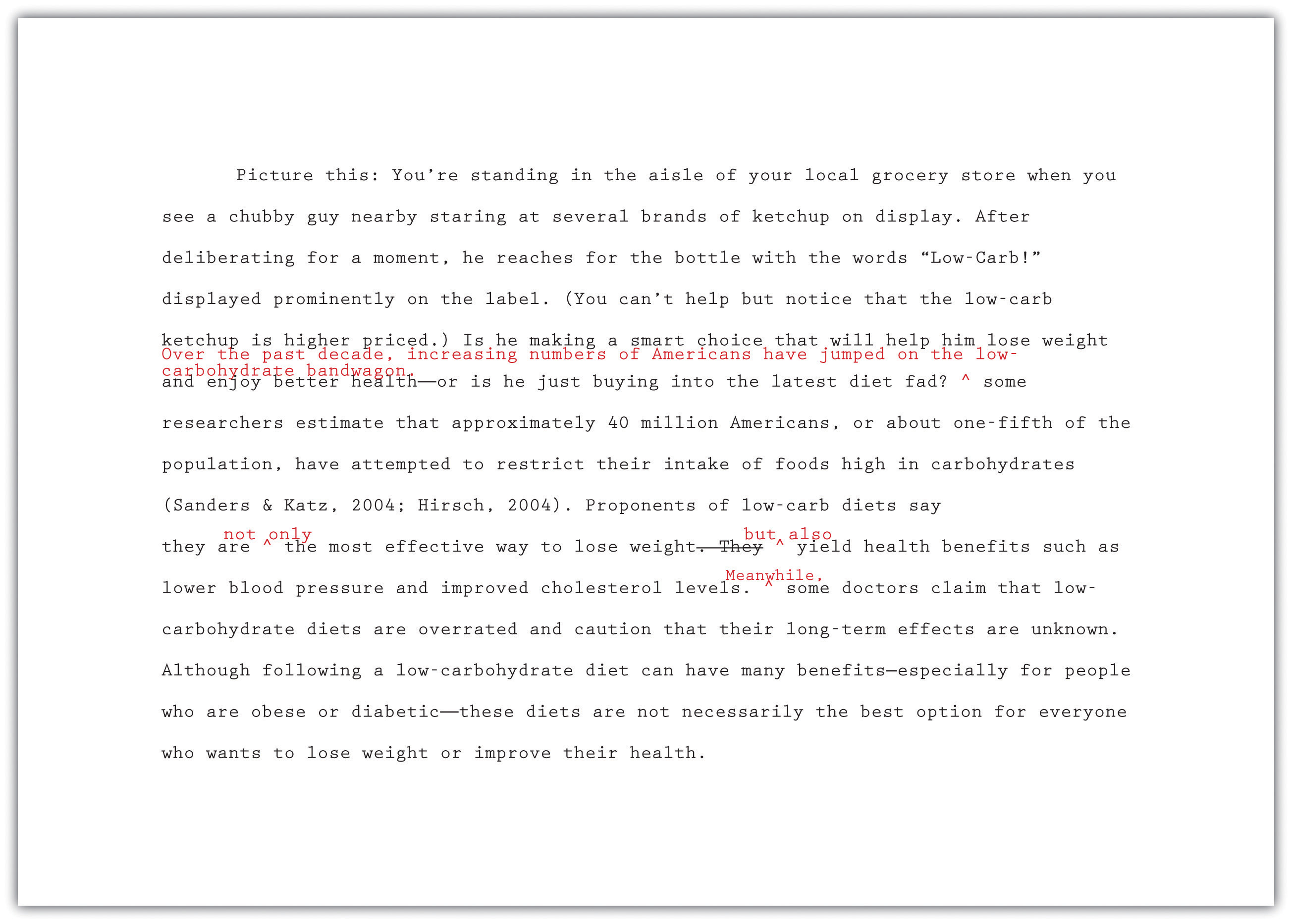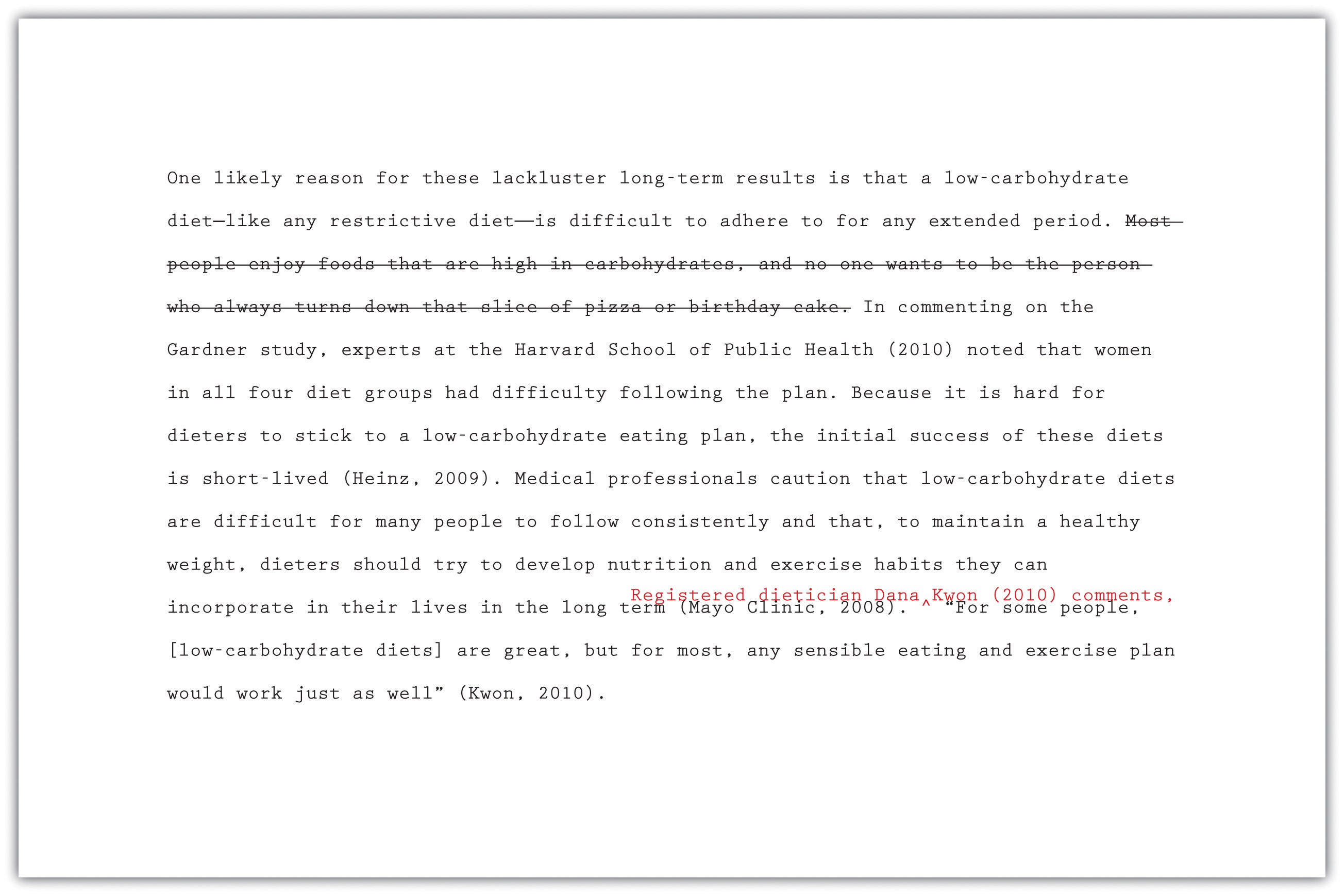_1573208484-min_1614621027.jpg)
This is the longest part of your text that is essential for good research paper. A previously developed and presented narrow theme should be thoroughly discussed here following standard academic requirements for coherent papers. Each paragraph in this section is a mini-research paper since you first develop a specific claim related to the particular aspect of the main thesis statement, provide evidence gathered during literature search that proves the mentioned claim, present your own interpretation and ability to analyze facts, and, finally, wrap everything up with a concluding sentence that also brings the next point of discussion for subsequent paragraphs.
In a piece as huge and complex as a research essay, the choice of a study focus is just a start. While reviewing literature you need to keep in mind the main claim and central idea of the paper in progress as well as the answer you expect to find. This claim is expected in the form of a thesis statement and the entire paper should aim at proving it.
The next step implies gathering good reliable sources to develop a literature review. Rely only on online university libraries and digital databases of scholarly journals and other academic credible sources like JSTOR. Google Scholar search engine is helpful to find publications that are recent and relevant to your research.
These are basic requirements for a perfect academic paper, irrespective of its specific type and content as the readability and coherence of a written paper represent that one honed his or her writing skills. Every instructor highly appreciates these abilities.
Main Types of Research Papers
APA: Usually used in Medicine, Psychological and Social sciences
Now you have to write it all down and produce a research paper. Transform your notes into a coherent, logical text that defends your point. Style of such papers is very formal with lots of specific terms. Make sure facts from reliable sources support every statement made in your work.
Basically, if you want to define a research paper, you would be speaking about academic work done completely independently. In such a project, you are supposed to present your own view on things you investigate. This is a major undertaking for anyone.

An argumentative research essay is written to persuade the reader to the writer’s point of view. An analytical research paper, on the other hand, is written to give a critical interpretation of information from various sources without taking a stand.
When researched like this, there is a chance that you will find both arguments for and against the topic. You will therefore be better placed to prepare counterarguments for your opponents.
- Gather any relevant sources on the topic at hand. You will look for articles, journals, and even other research papers that highlight the effects of video games on children.
- Evaluate your sources. Not all sources are legitimate and credible. You may need to do your research to decide which sources you will use to inform your arguments.
- Critically think and evaluate all the sources you are left with after eliminating the illegitimate sources in step two.
- Organize your ideas in the format you feel best suits you. There are many types of ordering to pick from when organizing your ideas, including chronological and climactic.
- Compose your research paper. You will attempt to write it the same way you will argue your points during the debate.
A research paper is not meant to be informative. You are supposed to analyze information from various sources and put it into perspective. There are two main types of research papers, namely argumentative and analytical research papers.
To Persuade
When you are stuck between two options, it may seem excessive to write a research paper to solve your dilemma. However, the process of preparing to write one may be useful to you in making that decision. The research paper will be useful to someone else who may face the same dilemma in the future.
We live in a world where fake news is a normal part of our everyday lives. Besides internet fees (which may also be free in some cases), it is virtually free to post things on the internet. This has contributed to a phenomenon called information overload as there is too much information out there.
To understand what it is, you may need to understand what researching is. Researching involves locating and analyzing information about a particular topic or thesis. If you want to share the information you found during your research, you may then write a research paper.

When you are stuck between two options, it may seem excessive to write a research paper to solve your dilemma. However, the process of preparing to write one may be useful to you in making that decision. The research paper will be useful to someone else who may face the same dilemma in the future.
The process of analyzing several sources, evaluating their decision, and forming your own perspective about a topic will help you make more informed decisions than if you had just done surface level searches for the solution.
Your thesis has to be about a controversial or debatable topic for you to write a successful argumentative research essay. It is futile to write an argumentative research essay about why the sun rises from the East as that is a fact.
We live in a world where fake news is a normal part of our everyday lives. Besides internet fees (which may also be free in some cases), it is virtually free to post things on the internet. This has contributed to a phenomenon called information overload as there is too much information out there.
Aid in Decision Making
You may write a research paper, particularly an argumentative research paper, if you are organizing your thoughts for a debate. Let’s say you have been given the topic ‘Children should not be allowed to play violent video games.’ You may choose to follow the next steps:
- Gather any relevant sources on the topic at hand. You will look for articles, journals, and even other research papers that highlight the effects of video games on children.
- Evaluate your sources. Not all sources are legitimate and credible. You may need to do your research to decide which sources you will use to inform your arguments.
- Critically think and evaluate all the sources you are left with after eliminating the illegitimate sources in step two.
- Organize your ideas in the format you feel best suits you. There are many types of ordering to pick from when organizing your ideas, including chronological and climactic.
- Compose your research paper. You will attempt to write it the same way you will argue your points during the debate.
If you are having an argument with someone over a particular topic, a research paper is a great way to prove your point. Just like when you are persuading and debating, you will organize your thoughts in a way that makes sense then present the paper to your opponent.
If you are writing an argumentative research paper, your goal may be to persuade your readers to come to a similar conclusion as yours. You will come up with a thesis or a claim. You will then back up this claim with evidence from several sources and tailor your argument to align with the thesis.

Understanding cohesion can also benefit you in the workplace, especially when you have to write and deliver a presentation. Speakers sometimes rely on cute graphics or funny quotations to hold their audience’s attention. If you choose to use these elements, make sure they work well with the substantive content of your presentation. For example, if you are asked to give a financial presentation, and the financial report shows that the company lost money, funny illustrations would not be relevant or appropriate for the presentation.
Jorge reread his draft paragraph by paragraph. As he read, he highlighted the main idea of each paragraph so he could see whether his ideas proceeded in a logical order. For the most part, the flow of ideas was clear. However, he did notice that one paragraph did not have a clear main idea. It interrupted the flow of the writing. During revision, Jorge added a topic sentence that clearly connected the paragraph to the one that had preceded it. He also added transitions to improve the flow of ideas from sentence to sentence.
Follow these steps to begin revising your paper’s overall organization.
Follow these steps to begin revising your paper to improve cohesion.
Using a Consistent Style and Tone

In a research paper, problems with cohesion usually occur when a writer has trouble integrating source material. If facts or quotations have been awkwardly dropped into a paragraph, they distract or confuse the reader instead of working to support the writer’s point. Overusing paraphrased and quoted material has the same effect. Use Checklist 12.2 to review your essay for cohesion.
As you revise your paper, make sure your style is consistent throughout. Look for instances where a word, phrase, or sentence just does not seem to fit with the rest of the writing. It is best to reread for style after you have completed the other revisions so that you are not distracted by any larger content issues. Revising strategies you can use include the following:
Please exchange papers with a classmate. On a separate piece of paper, note places where the essay does not seem to flow or you have questions about what was written. Return the essay and compare notes.

Once the information is gathered, the description and presentation of the conclusion has to be laid out. This means everything from the smallest detail on the environment, gender, race, sex and circumstances needs to be taken into consideration when describing and analyzing the presentation of facts. With all of these aspects in mind you can backup your opinion and better explain your findings and where your conclusion came from.
Research is what gives the researchers, storyteller, student or scientist the means to make a conclusion. When you’ve done proper research, you’re then able to spend time analyzing all of the moving parts, the variables and thus make an informed observation or conclusion on the subject.
When you’re exploring the topic, you want to gather as much evidence, experience and observation for you to begin building your theories. By familiarising yourself as much as possible with the subject you’re researching you begin to have objective and subjective observations. Exploration is the first phase of the research. The exploration aspect stokes the curiosity of the researcher, which then brings up questions that spur into further discovery, digging and study. The second part is built upon the desire to better understand the subject. For the researcher, they must have a deep yearning to find the answers, or the research can become dull and cumbersome.
Within the description of your research, the focus while may be based heavily on facts is dependant on the explanation of why. Why did you come to the conclusion that you did? Why did you conduct the research to begin with? Why did you focus on the particular group/gender/place that you did? Why did the analysis of the facts bring you to this particular answer or theory? All of your descriptions have to be based upon the facts linking to one another, thus explaining the thought process behind the “why,” of your conclusion.
Presenting the Facts
Without the passion, research can suffer or the researcher can begin to come to final conclusions, without diving deeper into the exploration of more. The depth of the research is imperative to finding the proper answer. Even with depth and understanding, there is often more research to be done.
Practical Research: The practical approach consists of the empirical study of the topic under research and chiefly consists of hands on approach. This involves first hand research in the form of questionnaires, surveys, interviews, observations and discussion groups.
Theoretical Research: A non empirical approach to research, this usually involves perusal of mostly published works like researching through archives of public libraries, court rooms and published academic journals.

